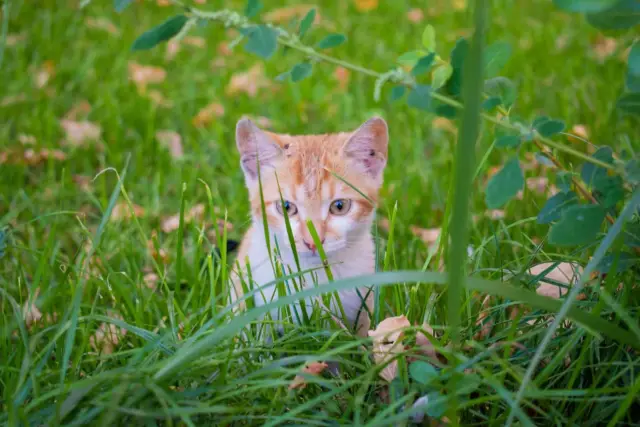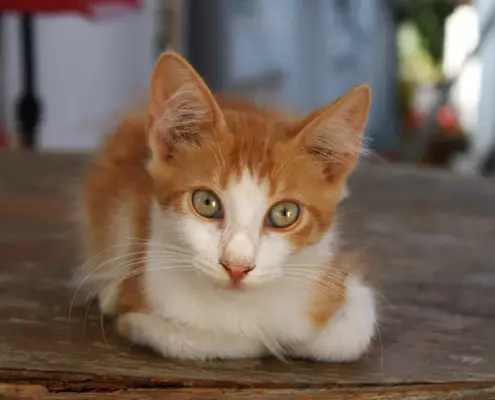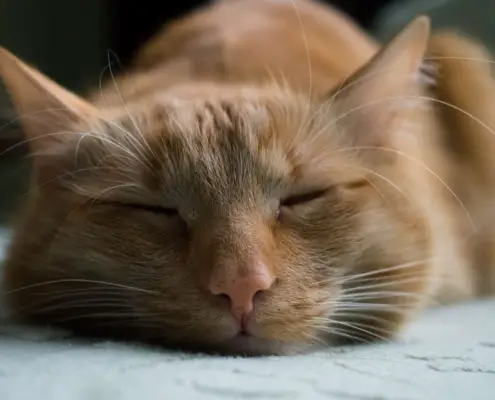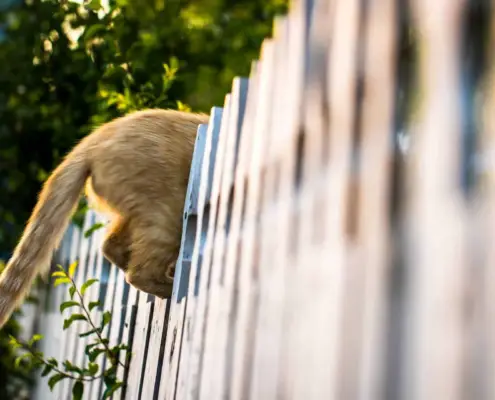
Cats are mysterious creatures with a complex range of emotions and behaviors. In order to understand what makes them nervous, it’s crucial to delve into their psychology. Cats are known for their independent nature, but they are also highly sensitive animals. They have evolved as both predator and prey, which means they are constantly assessing their environment for potential dangers.
One key aspect of cat behavior is their territorial nature. Cats are creatures of habit, and any disruption to their established routines can trigger anxiety. Additionally, cats are highly attuned to their surroundings and can become nervous if they perceive any unusual noises, smells, or changes in their environment. Understanding these basic aspects of cat behavior is essential in identifying the triggers that can make them nervous.
Common Triggers That Make Cats Nervous
Cats, like humans, have individual personalities and sensitivities. However, there are some common triggers that can make many cats nervous. One of the primary triggers is loud noises. Cats have sensitive hearing, and sudden loud sounds such as thunderstorms, fireworks, or even household appliances can startle them and cause anxiety.
Another trigger for cat nervousness is unfamiliar people or animals. Cats are creatures of routine and feel most comfortable in familiar environments with familiar faces. The presence of strangers, whether they are human or animal, can be stressful for cats, especially if they feel their territory is being invaded.
Changes in the physical environment can also make cats nervous. This includes moving to a new home, rearranging furniture, or even introducing new objects into their space. Cats are sensitive to changes in their surroundings, and any alteration can disrupt their sense of security and trigger anxiety.
Signs of Anxiety in Cats
Recognizing the signs of anxiety in cats is essential for addressing their nervousness. Cats are masters at hiding their emotions, so it’s important to observe their behavior closely. Some common signs of anxiety in cats include:
- Excessive grooming: Cats may groom themselves excessively when they are stressed or anxious. This can lead to hair loss or skin problems.
- Hiding: Nervous cats may seek out hiding spots to escape from perceived threats or stressful situations. This can include hiding under furniture or in small spaces.
- Aggression: Anxiety can manifest as aggressive behavior in cats. They may hiss, scratch, or bite when they feel threatened or scared.
- Urinating or defecating outside the litter box: Cats may exhibit this behavior when they are anxious or stressed.
- Excessive vocalization: Some cats may meow excessively when they are nervous, seeking attention or expressing their discomfort.
Ways to Calm a Nervous Cat
When it comes to calming a nervous cat, patience and understanding are key. Here are some effective strategies to help your furry friend find peace and comfort:
Creating a Safe and Secure Environment for Your Cat
Providing a safe and secure environment is essential for helping your cat feel calm. Ensure that your cat has a designated space where they can retreat to when they feel anxious. This can be a quiet room with their bed, toys, and litter box. Make sure this space is off-limits to other animals or people who may cause stress.
Additionally, establish a consistent routine for feeding, playtime, and sleep. Cats thrive on predictability, and a structured routine can help reduce anxiety. Finally, consider using pheromone diffusers or sprays that mimic the natural calming scents that cats release when they feel safe and content.
Natural Remedies for Calming Anxious Cats
There are several natural remedies that can help calm nervous cats. One popular option is the use of catnip, a plant that has a calming effect on many cats. You can offer catnip toys or sprinkle dried catnip on their bedding to help them relax.
Another natural remedy is the use of essential oils. These oils can be diluted and sprayed in your cat’s environment to promote relaxation. However, it’s important to note that not all essential oils are safe for cats, so always consult with a veterinarian before using them.
Professional Help for Cat Anxiety
If your cat’s anxiety is severe or persistent, it may be beneficial to seek professional help. Veterinarians and animal behaviorists specialize in understanding and treating cat anxiety. They can provide guidance on behavior modification techniques, prescribe medication if necessary, or recommend specialized therapies to help your cat overcome their nervousness.
Training Techniques for Reducing Cat Stress
Training techniques can be effective in reducing cat stress and anxiety. One widely used technique is desensitization, which involves gradually exposing your cat to the trigger that makes them nervous in a controlled and positive way. For example, if your cat is fearful of strangers, you can start by having a calm and trusted friend visit for short periods of time, gradually increasing the duration and number of visitors over time.
Another technique is counter-conditioning, where you associate the trigger with something positive. For instance, if your cat is anxious during car rides, you can gradually introduce short car trips while offering treats or playtime at the destination.
Remember, training should always be done at your cat’s pace and with positive reinforcement. Patience and consistency are key to success.
Cat Calming Products and Tools
There are various products and tools available in the market that can help calm anxious cats. One popular option is the use of anxiety wraps or vests, which provide gentle pressure and create a sense of security for cats. These wraps work similarly to swaddling a baby and can help reduce anxiety during stressful situations.
Another option is the use of interactive toys, such as puzzle feeders or treat-dispensing toys. These toys engage your cat’s mind and provide mental stimulation, which can help distract them from their anxious thoughts.
Lastly, there are calming supplements and medications available that can be prescribed by a veterinarian. These supplements contain natural ingredients that promote relaxation and can be used in conjunction with behavior modification techniques.
Helping Your Cat Find Peace and Comfort
Understanding what makes cats nervous is the first step in helping them find peace and comfort. By creating a safe and secure environment, using natural remedies, seeking professional help when needed, and employing training techniques, you can help alleviate your cat’s anxiety. Additionally, the use of cat calming products and tools can provide additional support in reducing their stress levels.
Remember, each cat is unique, and it may take time to find the best approach for calming your furry friend. Be patient, observant, and responsive to their needs, and together, you can help your cat overcome their nervousness and live a happy and stress-free life.
If you enjoyed my article, I would appreciate you sharing it with your network.

Sima Ndlebe
Sima writes for CatBuzz. He is interested in Cats, Health and Fitness, and Entrepreneurship.
Published: 5 December 2023




